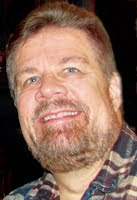A trivia question: How many spirits visited Ebeneezer Scrooge in the Dickens’ classic, Christmas Carol?
Without thinking, most will respond “three!” Cleave to those who correctly reckon “four,” for theirs is the Kingdom of Heaven. Verily, Jacob Marley was the first of four spirits who visited the cowering hermit – telling him to expect three (more) spirits ere the dawn of that Christmas morn.
Christmas Carol is a favorite work of fiction (or of nonfiction, for that matter). Were ever such characters caricatured, before or after? “Christmas Eve Scrooge” is the epitome of the Anti-Christ, the antithesis of the Spirit of Christmas. Likewise, Tiny Tim embodies the innocence of a child seeking something unseen to be believed (a mother’s love, perhaps, or the miracle of Santa Claus.
In my own career as a “ghost writer,” I often have been asked to infuse spirit into the text of greedy and spiritless offerors of products and services as empty and cold as the offices of Scrooge & Marley.
“Please make the writing more stylish and elaborate ... simple and strong,” my taskmaster begs of me.
I may be willing to lay aside, for the moment, the observation that “stylish and elaborate” are pretty much the EXACT opposite of “simple and strong.” And I may even bite my tongue at applying these kinds of attributes to a box of 3-inch wing nuts or a bank’s mundane offering of “free” checking.
But I am forever doomed it seems – without no prospect of reprieve at the rising of the Christmas Day sun – to grasp at some chain that might bind strong and stylish words to some product or service whose benefits are ethereal, at best.
Yes, the English language is gorgeous, melodic. The mere rhythm and pace of well-formulated rhetoric can entertain and even hypnotize.
But if rhetoric is to be more than eloquent pomposity, there has to be some there ... THERE! To write effectively about some commercial product or service, I have to touch, feel, comprehend its essence. And if there is no there there, it’s a ghost, and no measure of elocution blended into the ghostwriting recipe will save the sales campaign.
Fiction and narrative nonfiction writers are faced with the same dilemma. You can write about nothing, and the words may ring admirably in the air ... but they won’t ring true. It is a great exercise to write words simply for their own sway – sound and fury signifying nothing, if you will.
Writers, demand of your employers the substance to ply your craft. For if you are blessed with the tools of a carpenter, yet have no wood to shape, you are little more than a well-meaning spirit wielding no tool of shape or substance.
In the end, substance, and substance alone, begets great writing. The exercise of wordsmithing begets sweat. It is practice. And while it may even be practice worth committing to, you are left, in the end, with an idiotic voice crying in the wilderness at the silent, fallen tree.
Next: “Bah, Humbug!”
[For personal writing assistance, go to www.fixadocument.com]

No comments:
Post a Comment